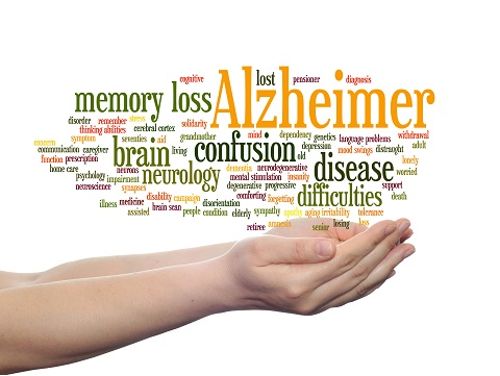What is Dementia?
Dementia is a general term for loss of memory, language, problem-solving, and other thinking abilities that are severe enough to interfere with daily life. Alzheimer’s is the most common cause of dementia.
Dementia often affects adults over 65, although it can also run in families where dementia has previously occurred.
What is Cynical distrust?
Cynical distrust, defined as the belief that others are mainly motivated by selfish concerns, has been associated with other health problems.
It can manifest as a result of frustration, disillusionment, and distrust perceived as owing to organizations, authorities, and other aspects of society.
Now what’s the relationship between Cynicism and Dementia?
“Understanding how a personality trait like cynicism affects risk for dementia might provide us with important insights on how to reduce risks for dementia.”
People with high levels of cynical distrust were three times more likely to develop dementia than people with low levels of cynicism.
Negative emotions like sadness and pessimism may be harmful to long-term mental health, as doctors have long known. However, a study presented at the U.S. National Library of Medicine suggests that late-life cynicism and scepticism may be linked to higher mortality as well as a higher chance of senility.
What is Dementia Care?
Dementia care is focused on improving the quality of life for individuals with dementia, helping them to maintain their independence, and supporting their physical, emotional, and social needs.
Dementia care also involves working with healthcare professionals to manage symptoms and provide appropriate medical care. This may include medications to manage cognitive symptoms, physical therapy to maintain mobility and reduce the risk of falls, and other treatments as needed.
The fully trained Alzheimer’s carers at Health Force of Georgia offer help with everyday tasks in the comfort and familiarity of the home.
Health Force of Georgia is aware of the significant hardships that come with learning that a family member has Alzheimer’s disease. Our compassionate method of providing Alzheimer’s memory care services assists families in managing this illness by:
- To preserve the dignity of a parent staying in their home, providing high-quality daily living services is necessary.
- Allowing them to remain in their familiar settings at home will help them maintain their independence for as long as feasible.
Compassionate Dementia Care in Atlanta
Without physical exercise or activity, it’s just a matter of time before body systems fail causing complicated medical challenges or life-threatening infections. The goal is to keep the person active and moving so the body maintains current health conditions as long as possible.
Socializing with others can help improve mood and self-esteem, which encourages more social engagement, stimulation of the brain and additional muscle movement contributing to overall quality of life.
- Seated exercises
- Standing exercises
- Bed exercises
- Going on walks
- Tending the garden
- Light household tasks such as dusting or sweeping
- Visiting a botanical garden, museum or local events
- Grocery shopping
- Going to the mall
- Outings with family and friends
The thing is to take a flexible, supportive approach that recognizes that the disease touches each person differently. What matters most is that your loved one enjoys the interaction and concentrates on the activity to keep neurons firing.
Types of Dementia Care
- Home-based care: This involves providing support and assistance to individuals with dementia in their own homes. Home-based care may include help with daily activities such as bathing, dressing, and meal preparation, as well as providing social and emotional support.
- Assisted living: Assisted living facilities offer support and assistance to individuals with dementia who may need help with daily activities but are still able to live somewhat independently. Assisted living facilities may provide meals, medication management, and social and recreational activities.
- Memory care: Memory care facilities are designed specifically for individuals with dementia and provide specialized care and support. Memory care facilities may have secure units and staff trained to manage the unique needs of individuals with dementia.
- Respite care: Respite care offers short-term care and support to individuals with dementia, allowing their primary caregivers to take a break from their caregiving responsibilities.
Who can Help?
Asking for help can be hard, but it is important to understand your limits. There may be people in your life or professionals who can help provide support. Connecting with them is a good place to start.
- Family members, friends, and neighbors can work together to share responsibilities and provide breaks for the primary caregiver.
- Geriatric care managers are professionals who can suggest needed services and help you get them.
- Healthcare providers of a person with dementia understand the disease and level of care needed and can offer recommendations on how to meet those needs.
- Mental health or social work professionals can provide emotional support and help develop plans to manage caregiver stress.
Communities offering memory care in Atlanta
- Brighton Gardens of Buckhead
- Summerset Assisted Living
- Charter of Vinings
- Belmont Village Buckhead
- Corso Atlanta
- Peachtree Creek Memory Care and some more….
In conclusion, dementia and memory care are crucial components of providing support and improving the quality of life for individuals with dementia. Dementia is a progressive condition that affects cognitive function and memory, and it requires specialized care and support that takes into account the unique needs and challenges of individuals with the condition.
Atlanta has a range of dementia and memory care options, including facilities that specialize in memory care, assisted living communities, and home-based care providers. These facilities and providers offer a range of services designed to meet the specific needs of individuals with dementia, including specialized staff training and tailored activities and therapies.



Recent Comments